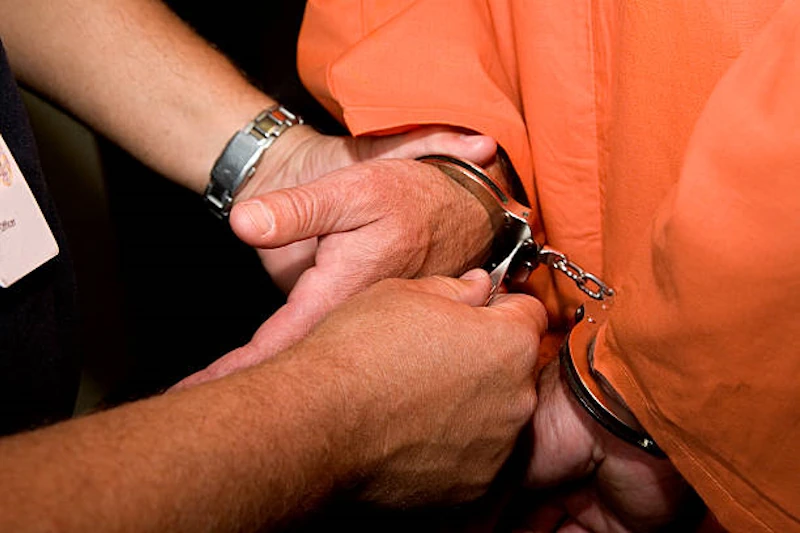The United States’ legal system is built on the fundamental principle that every accused individual deserves a fair trial and legal representation. In this regard, a criminal defense attorney plays a crucial role in upholding justice by defending the rights of individuals charged with criminal offenses. This article aims to provide an in-depth understanding of the responsibilities, roles, and types of cases handled by a criminal defense attorney in the United States.
A criminal defense attorney is a legal professional who specializes in representing individuals charged with criminal offenses. The primary objective of a criminal defense attorney is to ensure that their clients receive a fair trial and are protected from any violations of their constitutional rights. A criminal defense attorney advocates and advisors, working diligently to safeguard the rights and interests of their clients throughout the criminal justice process.
A criminal defense attorney provides legal counsel and advice to their clients, explaining their rights and the potential consequences they may face. They guide their clients through the complexities of the legal system, helping them make informed decisions regarding their cases.
An essential part of a criminal defense attorney’s job is looking into the allegations against their client. To construct a solid defense, they examine police records, collect evidence, question witnesses, and consult with specialists. They plan to contest the prosecution’s assertions by finding any holes in their logic, and they intend to do it by carefully studying every facet of the case.
In cases where the evidence against their client is robust and criminal defense attorneys may engage in plea negotiations with the prosecution. They advocate for reduced charges or a lenient sentence, aiming to secure the best possible outcome for their client. This process involves careful analysis of the evidence, knowledge of local laws, and practical negotiation skills.
During trial proceedings, criminal defense attorneys represent their clients in the courtroom. They present arguments, cross-examine witnesses, and object to improper evidence or legal procedures. They aim to cast reasonable doubt on the prosecution’s case and ensure their client’s rights are always protected.
Criminal defense attorneys play a crucial role in the sentencing phase if their client is found guilty or chooses to plead guilty. They present mitigating factors and evidence of their client’s character to the judge to secure a fair and just sentence.

Criminal defense attorneys handle a wide range of cases, including:
Misdemeanors are less serious crimes that carry lighter penalties. Criminal defense attorneys defend clients charged with petty theft, simple assault, or driving under the influence (DUI). They work to minimize the consequences and protect their clients’ records.
Felony offenses are more serious crimes that can result in substantial prison sentences. Criminal defense attorneys represent clients charged with murder, robbery, drug trafficking, or white-collar offenses. They employ comprehensive defense strategies, challenging the prosecution’s evidence and ensuring a fair trial.
Criminal defense attorneys specializing in juvenile defense represent minors accused of criminal activities. They navigate the juvenile justice system, aiming to secure rehabilitation-focused outcomes rather than punitive measures.
Criminal defense attorneys also handle cases on appeal. They review trial records, identify legal errors or constitutional violations, and present arguments to higher courts seeking to overturn convictions or secure a new trial for their clients.

Criminal defense attorneys may also specialize in specific areas of criminal law, allowing them to provide focused expertise. Some common specialized areas include:
Attorneys specializing in DUI defense help clients charged with driving under the influence of alcohol or drugs. They have in-depth knowledge of DUI laws, field sobriety tests, breathalyzer equipment, and procedural requirements. They aim to challenge the evidence and ensure their client’s rights were not violated during the arrest or testing process.
Attorneys specializing in drug defense handle cases involving drug possession, distribution, manufacturing, or trafficking. They understand drug laws, search and seizure procedures, and the nuances of drug-related charges. Their defense strategies may involve challenging the legality of searches, questioning the chain of custody of evidence, or exploring potential constitutional violations.
White-collar crimes encompass non-violent offenses typically committed in business or professional settings, such as fraud, embezzlement, or insider trading. Attorneys specializing in white-collar crime defense possess knowledge of complex financial transactions, corporate regulations, and the intricacies of white-collar investigations. They work to protect their clients’ rights and reputations throughout the legal process.
Attorneys specializing in domestic violence defense represent individuals accused of domestic violence offenses. They understand these cases’ sensitive nature and their potential impact on family dynamics. They focus on challenging evidence, exploring self-defense claims, and advocating for fair treatment and rehabilitation rather than overly punitive measures.

Criminal defense attorneys must adhere to strict ethical guidelines and maintain the highest standards of professional conduct. They must act in their client’s best interests while upholding the legal profession’s integrity.
Vital ethical considerations include:
Attorneys are bound by attorney-client privilege, ensuring all communications between the client and attorney remain confidential. This privilege allows clients to share sensitive information without fear of being disclosed to others.
Criminal defense attorneys must provide zealous representation for their clients, advocating for their rights and vigorously challenging the prosecution’s case. This includes thorough investigation, diligent preparation, and effective courtroom representation.
Attorneys must avoid conflicts of interest that compromise their ability to provide unbiased representation. They should not represent multiple clients with conflicting interests in the same case.
Criminal defense attorneys should maintain professionalism and treat all parties in the legal process respectfully. They must adhere to court rules, follow proper courtroom etiquette, and respectfully interact with judges, prosecutors, and witnesses.
Criminal defense attorneys play a vital role in safeguarding the constitutional rights of individuals accused of criminal offenses in the United States. They serve as advocates, advisors, and legal representatives, working tirelessly to ensure their clients receive fair treatment throughout the criminal justice process.
By investigating the charges, building robust defense strategies, and representing clients in court, they strive to protect their rights and secure the best possible outcomes. Whether handling misdemeanors, felonies, juvenile cases, or appeals, criminal defense attorneys are dedicated to upholding justice and ensuring that every accused receives a fair trial.
Do you need better criminal defense? Check out our growing directory of criminal defense attorneys!
